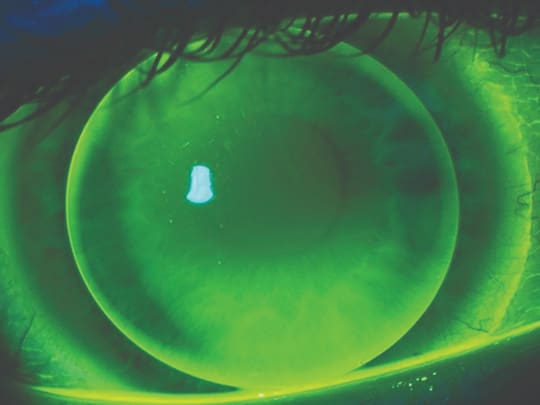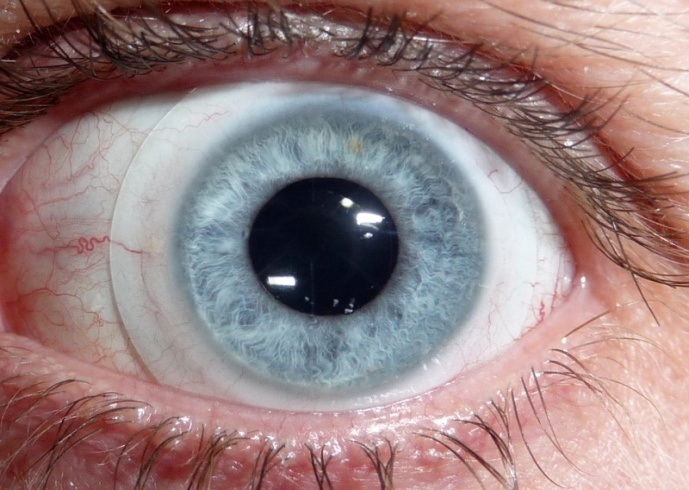CONTACT LENS CLINIC
Contact lens is the optical and prosthetic refractive errors , it is mainly cosmetic as well as treatment purpose
Shankar’s Eye Hospital have a best clinic for contact lenses. Our team of experts will help you find the best lens for your condition. We have the latest equipment and a wide range of lenses with different designs. We have successfully solved many challenging cases and changed the lives of our patients.
What is the cornea and why is it important?
The cornea is the clear part of your eye that covers the front surface. It bends the light that enters your eye and helps you focus on what you see. The cornea is very sensitive and can be damaged by injuries, infections, diseases, or surgeries. This can affect your vision and cause pain or discomfort.
What are the indications for contact lenses?
Speciality contact lenses are designed to fit your eye shape and correct your vision problems. They can help you if you have any of these conditions:
- Ocular surface disorders: These are problems with the outer layer of your eye, such as dryness, inflammation, or scarring.
- Colour vision deficiency: This is when you have trouble seeing certain colours or telling them apart.
- Keratoconus: This is when your cornea becomes thin and bulges out like a cone.
- Keratoglobus: This is when your cornea becomes thin and bulges out like a globe.
- Pellucid marginal degeneration: This is when your cornea becomes thin and bulges out at the lower edge.
- Corneal opacity: This is when your cornea becomes cloudy or scarred, blocking your vision.
- High astigmatism: This is when your cornea has an irregular shape that causes blurred vision.
- Post LASIK ectasia: This is when your cornea becomes weak and unstable after laser eye surgery.
- Intolerance to ordinary contact lenses: This is when you cannot wear regular contact lenses because they cause irritation, infection, or allergy.
Speciality contact lenses can also help you if you are a sports person, or if you have had a corneal tear repair, pannus, irregular astigmatism, post-traumatic, penetrating keratoplasty, post-refractive surgery complication, or post herpetic infection.
What are the types of speciality contact lenses?
Shankar’s Contact Lens Clinic offerd a variety of speciality contact lenses to suit your needs. Here are some of the types

Rigid Gas Permeable Lenses
These are hard lenses that allow oxygen to pass through. They are very common and affordable. They can correct most vision problems, including high astigmatism and keratoconus. We have different brands and models of RGP lenses with high oxygen permeability.
Scleral Contact Lenses
These are large lenses that cover the entire cornea and rest on the white part of your eye, called the sclera. They do not touch the cornea at all, which makes them very comfortable and stable. They can help you if you have severe corneal disorders, such as ocular surface diseases, corneal opacities, or post-traumatic.
There are different sizes of scleral lenses, depending on how much of the sclera they cover:
- Corneo-scleral lenses and semi-scleral lenses: These are medium-sized lenses that rest near the edge of the cornea and the sclera.
- Mini-scleral lenses: These are larger lenses that are placed over the whole cornea and rest on the front part of the sclera.
- Full scleral lenses: These are the largest lenses that provide the most space between the lens and the cornea.

Some advantages of using scleral lenses are:
- Larger Size: Scleral lenses have a larger diameter (19-24mm) compared to standard contact lenses (14-16mm). This larger size allows them to vault over the sensitive cornea and rest on the white part of the eye (sclera). As a result, they are more comfortable, stable, and easier to handle.
- Promotes Healing: Scleral lenses are designed to provide continuous hydration and relief for dry eyes. Before insertion, nourishing solution or lubricating eye drops are applied to the “bowl” of the scleral lens, creating a fluid-filled reservoir between the lens and the cornea. This environment promotes healing after corneal injury.
- Dry Eye Relief: Standard contact lenses can worsen dry eye symptoms, but scleral lenses are ideal for dry eye sufferers. They offer continuous hydration, making wear more comfortable while also reducing overall dry eye symptoms.
- Ideal for Hard-to-Fit Eyes: Keratoconus and Corneal Conditions: Scleral lenses vault over the cornea, avoiding direct contact. This makes them an excellent choice for people with keratoconus or other corneal irregularities.
All scleral lenses are made of breathable materials that let oxygen reach your eye. They also create a fluid reservoir between the lens and the cornea, which keeps your eye moist and healthy.
Bandage Contact Lenses (BCL)
When Are Bandage Lenses Used?
- After corneal injury, surgery, or conditions like corneal erosions.
- They protect the cornea and promote healing.
Benefits of Bandage Contact Lenses
- Corneal Protection: Shields the cornea from further damage.
- Pain Relief: Provides comfort during the healing process.
- Promotes Epithelial Healing: Allows the corneal epithelium to regenerate.
Colour contact lens
- To change the make over a person
- To hide the iris colour change
Ortho k Contact Lens
- A non surgical treatment for Myopia while sleeping
- Modify the cornea through moulding eye surface
- Ortho K lens using only sleeping time